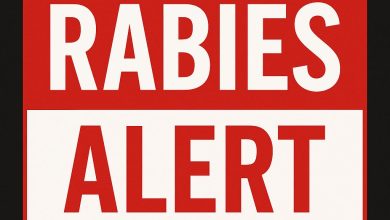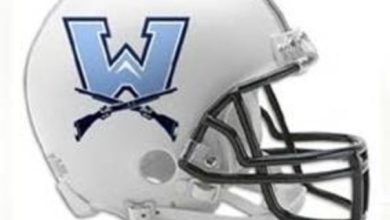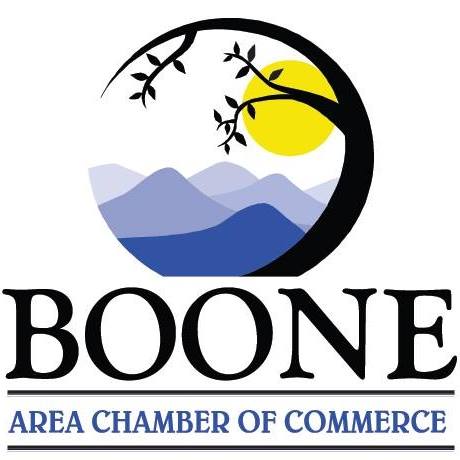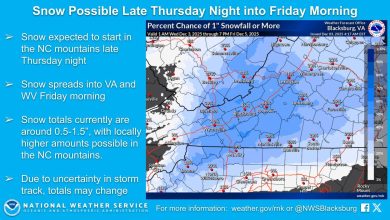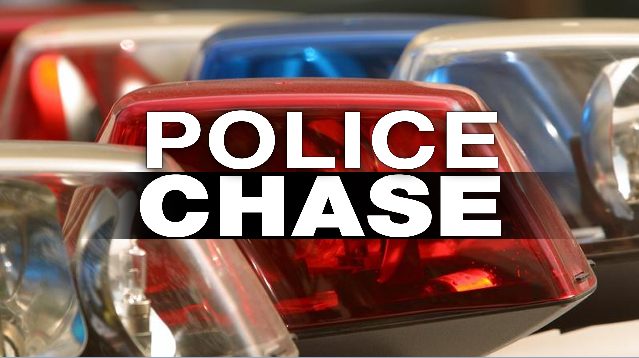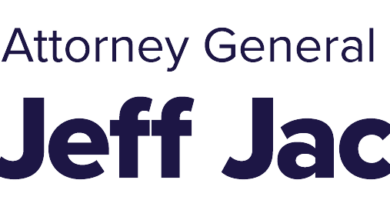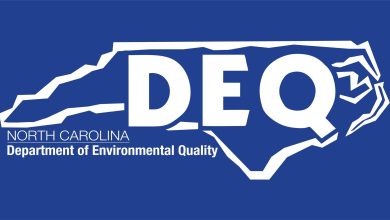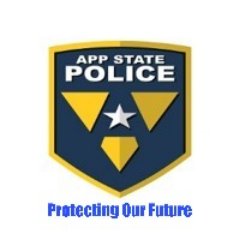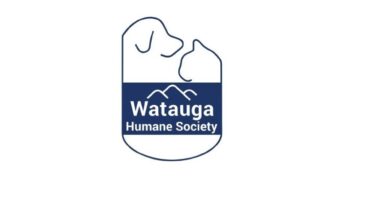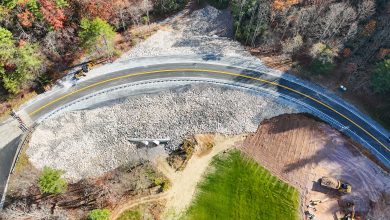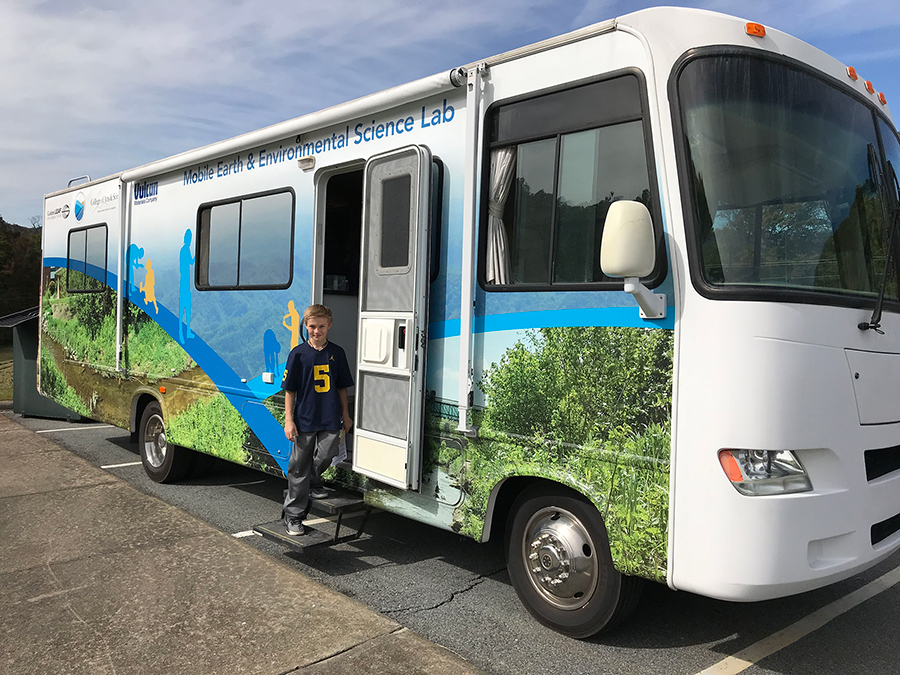
Last Updated on September 26, 2023 12:55 pm
BOONE, N.C. — This fall, Appalachian State University has once again rolled out its Geobago recreational vehicle to bring hands-on science activities to K–12 students in Western North Carolina and beyond. The mobile classroom, which celebrates its five-year anniversary this September, is one of the many community outreach programs provided by the Department of Geological and Environmental Sciences (GES).
“There are a lot of schools scattered throughout the area that are Title I schools in low-income communities and are not able to bring their students to App State’s campus for a variety of reasons,” said Marta Toran, lecturer and outreach coordinator in the GES department. “With the Geobago, we are able to visit those schools and give them hands-on science experience in a mock lab.”
The restored and renovated recreational vehicle (RV) is staffed by GES department faculty and students and is equipped with electrical outlets, water sources, environmental science probes, computer technology and microscopes. These resources provide many educational opportunities centered around rock and mineral identification, paleontology, hydrology and other environmental science topics.
“We base our programs around what the teachers’ needs are and we adapt to them,” said Toran. “Our activities align with their curriculum and we offer ways for students of all different abilities to be inspired and engaged.”
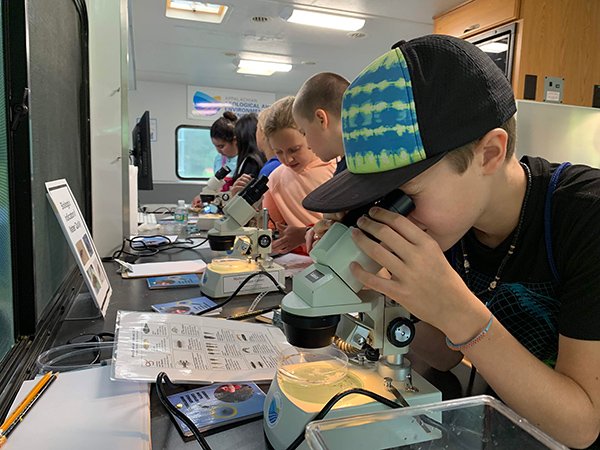
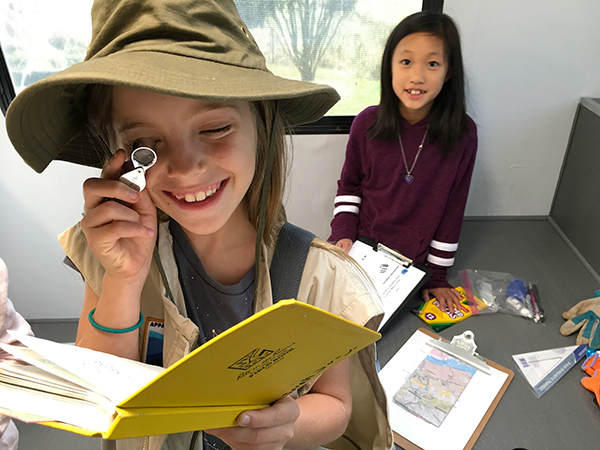
Since its launch in 2018, the Geobago has visited numerous schools across the state and makes regular appearances at field day events, career day events, festivals and much more. The vehicle has also traveled to several science centers over the years, including the Schiele Museum in Gastonia and the Museum of Life and Science in Durham.
Most recently, GES professor and paleontologist Dr. Andrew Heckert — who has been involved with the Geobago since it first hit the road — parked the RV at the Museum of Natural History in Martinsville, Virginia, for its Dino Festival weekend in July.
“I was able to bring 10 App State students and we interacted with about 2,000 people,” said Heckert. “The museum does a lot to reach the underserved population, so for a lot of kids, this was maybe their first opportunity to actually see or touch a fossil.”
One of the students on the trip was Alec Quinn, of Holly Springs, a senior geology major with a concentration in paleontology who is a museum and outreach intern for the Geobago program.
“Trips like this made me realize I want to go to grad school for museum studies,” said Quinn. “I love the behind the scenes of museums and creating exhibits, and to get these kids interested in science is awesome.”
Quinn debuted a new exhibit on paleoart at the Virginia museum and said she is excited to continue working on more exhibits this semester, to get people interested in paleontology in more artistic ways.
“These events are really excellent for our students,” said Heckert. “Anybody who does any form of teaching knows that the best way to learn a subject is to try and teach it.”
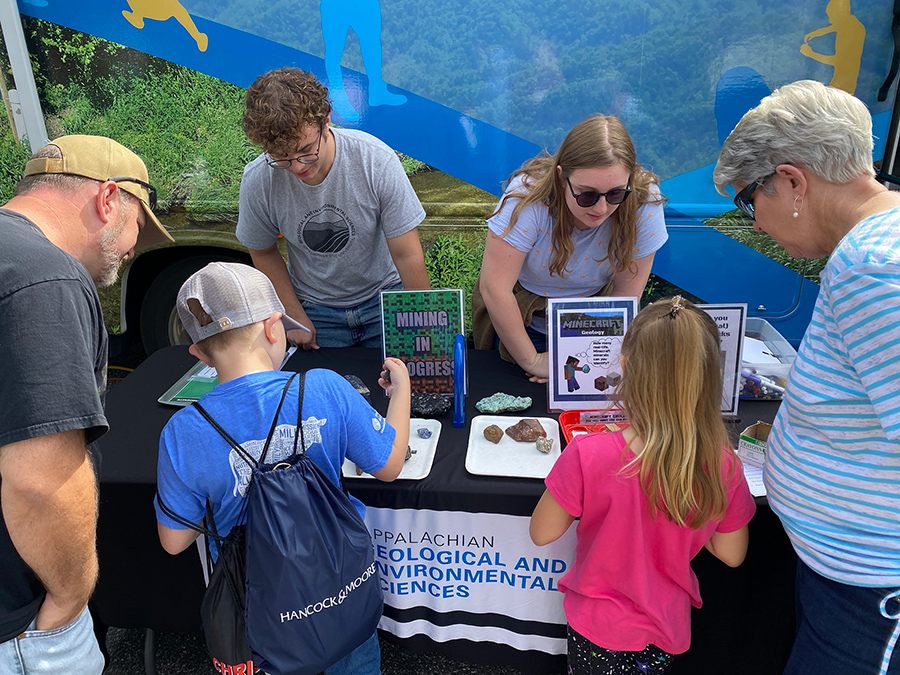
From rough shape to road ready
Originally purchased with grant funds for a project that was later discontinued, App State’s Geobago sat in the State Farm parking lot near the Boone Greenway for about 10 years before it was fully converted into the mobile science lab it is today, shared Toran.
“We had to strip out the entire floor, replace all of the wood, take out the bed and bathroom, install cabinets and lab benches — it was a lot of work,” she said. “The main goal was to create a laboratory-like space that was flexible and easy to clean, with a lot of storage for our activity kits.”
After a couple of months of planning and with a budget in place, Toran and her colleagues called on several RV refurbishing companies to help with the interior remodel of the vehicle, and the Department of Art was tasked with the exterior design for the vehicle wrap.
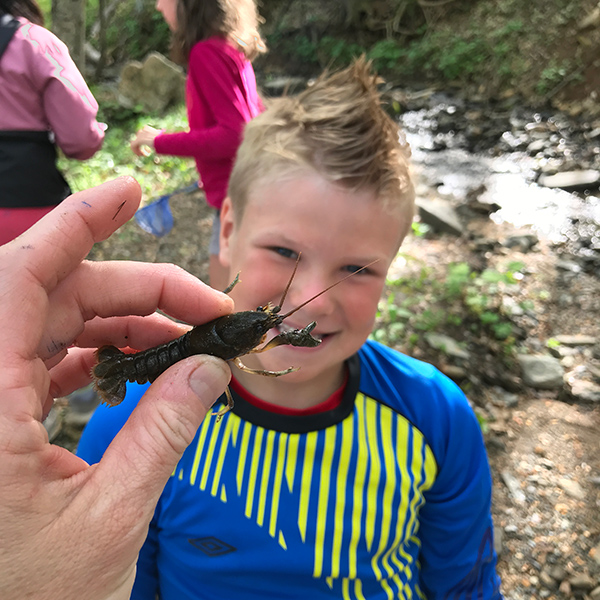
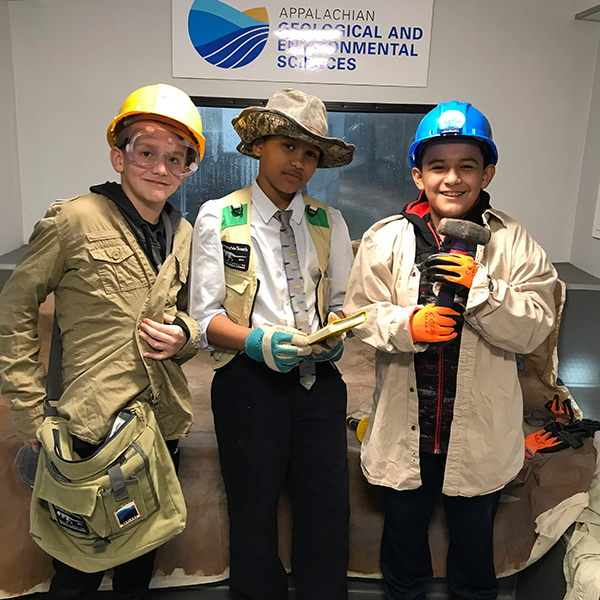
“When Marta dreamed this idea up, I thought it was fantastic,” said Heckert. “I knew it would be an immediate game changer in terms of our outreach and what we could do at schools.”
Funding for the project came from an environmental education grant awarded by the Environmental Protection Agency, the College of Arts and Sciences and continued donations from the Vulcan Materials Company Foundation.
“The support we’ve gotten from Vulcan has been monumental,” said Heckert.
Toran said the Geobago would not have been possible without Heckert, as well as GES Research Operations and Laboratories Manager Anthony Love, GES administrative assistant Lauri Miller and Senior Vice Provost of Faculty Policies and Development Neva Specht, who was dean of the College of Arts and Sciences at the time.
“In the five years of operation, Geobago programs have reached over 8,000 people, including students, teachers and families. The mobile lab has visited schools, museums, community festivals, parks and even rock quarries. These events would not have been possible without the over 100 undergraduate students who have been involved in Geobago programs over the years,” said Toran.
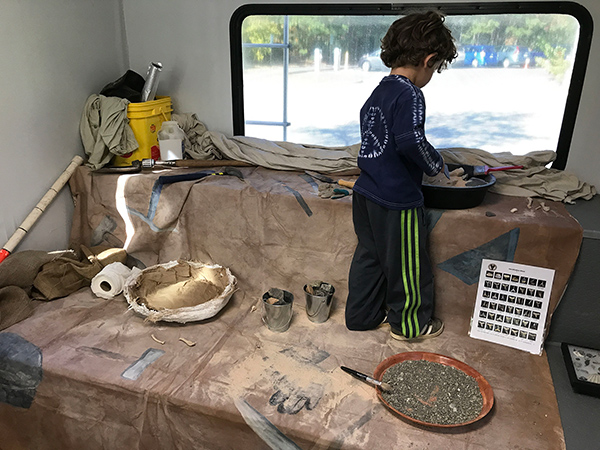
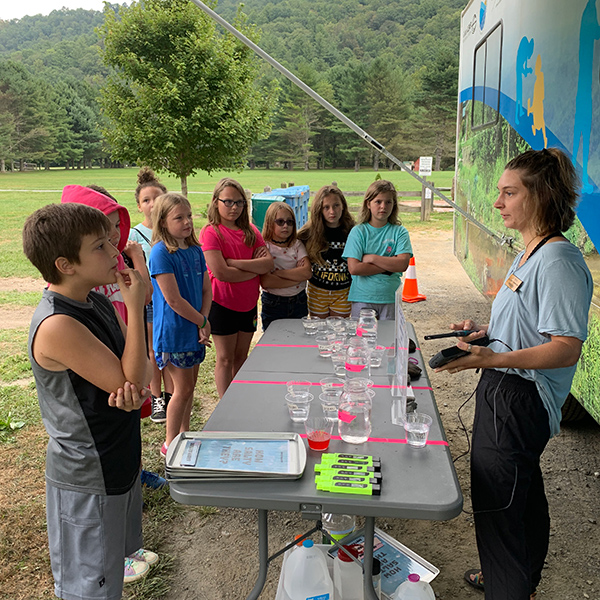
Request a Geobago visit
Toran said the Geobago is in high demand and operates on a first-come, first-served basis. She said schools typically need to book a visit a semester in advance.
The Geobago runs from September to October during the fall semester and from March to May in the spring semester. Toran said that depending on the weather, the vehicle will sometimes operate in November.
To request a Geobago visit, fill out the GES outreach request form. For more information about the Geobago and other GES outreach programming, visit https://earth.appstate.edu/outreach and/or contact Toran at toranml@appstate.edu.









